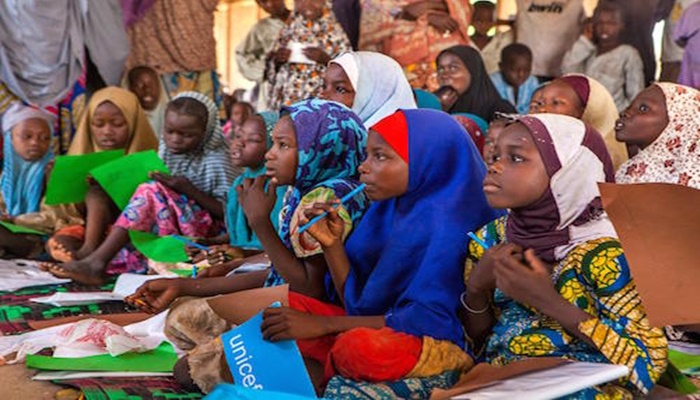
The United Nations Children’s Funds (UNICEF), says 69.2 per cent of children in Kano State are multi-dimensionally poor.
Fatima Musa, a Social Policy Specialist with the UNICEF, Kano Field Office, disclosed this in her presentation during a media dialogue on Friday in Zaria.
The media dialogue is on Children’s Advocacy Priorities for News and Programme Managers from Kano, Katsina, and Jigawa states.
Musa explained that 69.2 percent of children aged 0-17 years old were defined as multi-dimensionally poor, while 59.5 percent of children of 0-17 years were monetarily poor in Kano.
“Across the geo-political zones, the child MPI shows higher poverty in the North-East and North-West (where 90% of children are poor) and lower poverty in the South-East and South-West (74% and 65.1% respectively).
“The incidence of child MPI is above 50% in all states and greater than 95% in Bayelsa, Gombe, Sokoto, and Kebbi states.
“UN Convention on the right of Children (UNCRC) provides for a child: person under the age of 18; primary role of parents and family in the care and protection with state’s obligation to help them to carry out their duties,” she said.
The social policy specialist, who raised the alarm over the increased child poverty in Nigeria, called on governments at all levels to increase budgetary allocation for children-focused interventions.
According to her, the menace can be reduced by providing quality education, water, good healthcare services, access to good shelter, child protection, and social safety nets.
She also lauded Katsina and Kano states for accepting Universal Child Benefits and for expressing interest in piloting it.
According to the specialist, the development came at the right time, as it’s aimed at addressing child poverty.
Earlier, Samuel Kaalu, UNICEF Communication Specialist, Kano Field Office, called on media practitioners in the country to focus more attention on issues affecting the wellbeing of women and children in their reportage.
Kaalu also urged them to give adequate attention to the issue of violence against children in order to ensure proper enlightenment of the public against the phenomenon.
The communication specialist said violence against children occurring in homes and communities usually goes on unnoticed or denied.
He further called for more support from the media in sensitising the public to the importance of enrolling children in school.